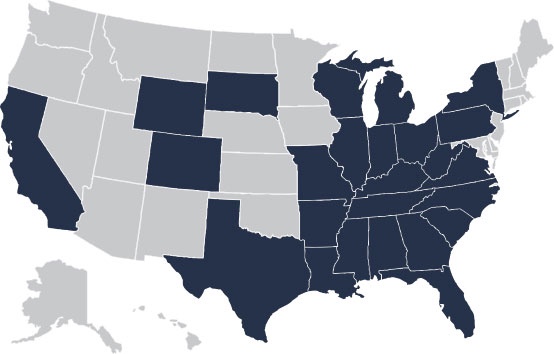Trenching accidents are often fatal and yet they are usually easily preventable. No one denies that working construction is dangerous. There are pitfalls everywhere: Live wires, heavy equipment, heights, badly assembled or manufactured tools or scaffolding, fall injury risks and poor maintenance are just some of the hazards of earning a living in this critical industry.
Between 2000 and 2006, 271 people died in trench collapses in the United States, according to the Bureau of Labor Statistics. Between 1992 and 2000, 448 people died in trenching accidents. More recent numbers from OSHA show that 22 people died and 610 were injured or became sick while working in trenches. In 2013, 70 people were injured in Kentucky trenching accidents while 610 were injured nationwide. If the collapse of the trench is not entirely due to the fault or negligence of the worker,
Government agencies publish informational and training materials on how to avoid trench collapses. For example, the National Institute for Occupational Safety and Health (NIOSH) published a pamphlet titled, “Preventing Worker Deaths From Cave-Ins.” The topics covered include ways to prevent trench collapses, case studies of trench collapse incidents, things that workers should do to protect themselves and a list of references for additional information.
OSHA provides a fact sheet about trench hazards and how to protect workers from being injured or killed in trenching accidents and other workplace events. According to OSHA, preventing a trench collapse should involve one or more of these protective systems:
OSHA also provides common-sense rules that employees and supervisors at construction sites can follow when working in trenches and excavations:
Making trenches safe requires analysis of soil, depth of the cut, weather, moisture content of soil, weight of materials (tools and equipment) to be used in the trench and other factors. Making trenches safe is a serious responsibility for owners and managers who assign employees to work in them.
An incident in June revealed that Kentucky workplaces and construction sites are not immune to the dangers of trenches. According to a report by the Kentucky Center for Investigative Reporting, a Jackson, Tennesee, man was killed when concrete and dirt collapsed on him while he was repairing a sewer line on the Dixie Highway in south Louisville. The worker died at the scene after suffering traumatic asphyxia and blunt impact. Although the trench had been shored up, excavated dirt and debris slid down into the hole, burying the worker. This was the first fatal trench accident since April 2012, when a Clay County worker was killed in a trench accident.
Trench accidents can happen almost anywhere there is excavating. Workers have died or suffered serious injury when working on sewers, ditches, embankments and foundations – any type of work where it is necessary to dig a hole in the ground. After the Louisville fatality earlier this year, the director of the OSHA office in Nashville noted, “When you put workers in an unprotected trench, you are putting them in a grave. These hazards are easily identified and totally avoidable. There is no excuse for exposing workers to unprotected trenches.
If you or someone you love is injured or loses their life in a trench accident we invite you to contact the highly recommended personal injury attorneys at HLH or call (866) 583-9701 for a free consultation.
Louisville’s Most Established PI Firm
231 Breckenridge Lane, Suite 201
Louisville, KY 40207
Telephone: (502) 583-9701
Toll-Free: (866) 583-9701
Fax: 502-589-1144
Louisville Law Office Map
We've Handled All Types of Personal Injury Cases In The Following States as well as Canada and Mexico
